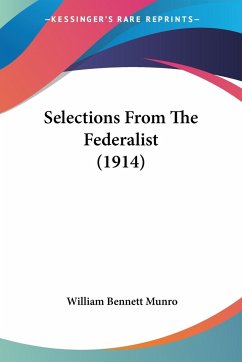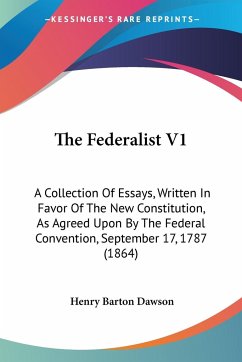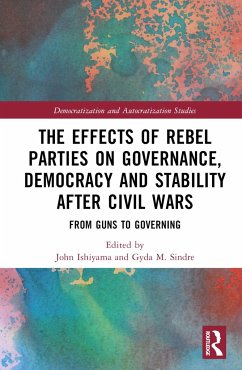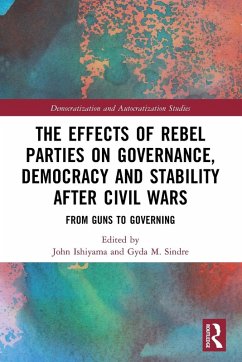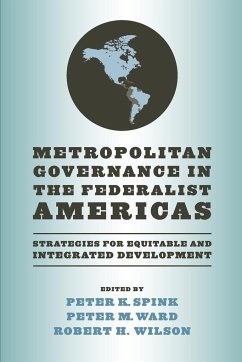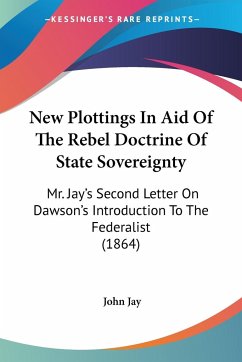
New Plottings In Aid Of The Rebel Doctrine Of State Sovereignty
Mr. Jay's Second Letter On Dawson's Introduction To The Federalist (1864)

PAYBACK Punkte
9 °P sammeln!
""New Plottings In Aid Of The Rebel Doctrine Of State Sovereignty: Mr. Jay¿¿¿¿¿¿¿s Second Letter On Dawson¿¿¿¿¿¿¿s Introduction To The Federalist (1864)"" is a political book authored by John Jay. Published in 1864, the book is a second letter written by Jay in response to Dawson's Introduction to the Federalist. The book discusses the concept of state sovereignty and its association with the Confederacy during the American Civil War. Jay argues that the Confederacy's use of state sovereignty as a justification for secession is a dangerous and misguided interpretation of the Cons...
""New Plottings In Aid Of The Rebel Doctrine Of State Sovereignty: Mr. Jay¿¿¿¿¿¿¿s Second Letter On Dawson¿¿¿¿¿¿¿s Introduction To The Federalist (1864)"" is a political book authored by John Jay. Published in 1864, the book is a second letter written by Jay in response to Dawson's Introduction to the Federalist. The book discusses the concept of state sovereignty and its association with the Confederacy during the American Civil War. Jay argues that the Confederacy's use of state sovereignty as a justification for secession is a dangerous and misguided interpretation of the Constitution. He also critiques Dawson's interpretation of the Federalist Papers, arguing that it is biased towards the Confederate perspective. Overall, ""New Plottings In Aid Of The Rebel Doctrine Of State Sovereignty"" is a historical document that sheds light on the political debates and tensions of the Civil War era.This scarce antiquarian book is a facsimile reprint of the old original and may contain some imperfections such as library marks and notations. Because we believe this work is culturally important, we have made it available as part of our commitment for protecting, preserving, and promoting the world's literature in affordable, high quality, modern editions, that are true to their original work.



